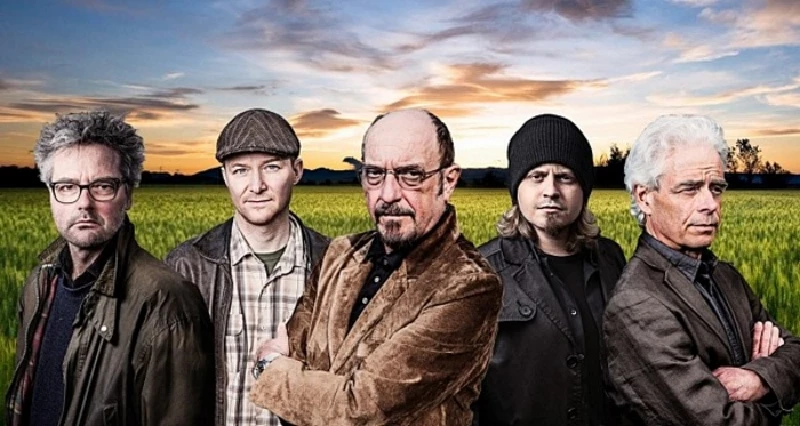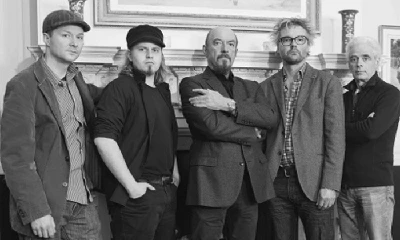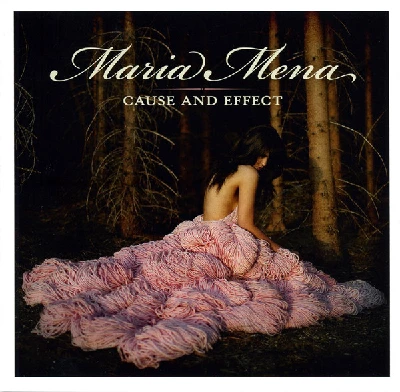Ian Anderson - Interview
by Lisa Torem
published: 25 / 8 / 2015

intro
Lisa Torem speaks to multi-instrumentalist and composer Ian Anderson, who is bringing to life the story of namesake and industrialist Jethro Tull in a brand new rock opera
After 47 years on the road and in the studio, Ian Anderson, songwriter, lead singer, flautist, and mandolin and acoustic guitar player of British prog rock band, Jethro Tull, graces the international stage with Jethro Tull: The Rock Opera, which is based on the life of the real life Tull, an 18th century industrialist. To bring the story to life, Anderson has written several new songs and incorporated classic Tull repertoire into the production. This year, he and his touring band will also present a Best of Jethro Tull Concert. PB: With the Jethro Tull Rock Opera, you said on your website that you’ve looked through your repertoire and discovered so many fits. Can you elaborate on how a song like ‘Locomotive Breath’ might fit into the theme? IA: There were some perfect fits; songs like ‘Farm on the Freeway’ and a few others, some were an imperfect fit, but either stretched a little bit by changing the story line or stretched to fit a little better by changing some lines of vocal or even adding a new verse. I suppose it was somewhat of a surprise at finding that there were all of these possibilities amongst lyrics that I’d written over the years, that fitted how little we know about the life story of the original Jethro Tull, but my job as a writer is to be creative and make things fit, so that’s what I do. PB: Tull’s inventions were not really used until about a century after he developed them. Will you be exploring some of the controversy in his life? IA: His position at the time was not particularly controversial—he made a study of agricultural methods in the UK and Italy and France and he was someone who travelled partly because of seeking a respite from pulmonary infections that he suffered as a child— cue the song, ‘Aqualung’--and he wrote about these things and incorporated them into his book ‘Horse-hoeing Husbandry’, an instant bestseller, because they didn’t have things like that back then. But his methodologies were discussed within the farming community in the agricultural college and he would be someone who, I suppose, was quite well known to agriculturists in his lifetime but history remembers him as being a defining figure among doubtless several who were part of the general ongoing improvement to agricultural methods. He was wrong about a couple of things. For instance, he didn’t see the point of adding any nutrients back to the soil. He was a person who believed that simply tilling would be enough, that by magically infusing the soil, turning it over and getting the air into it, it would suddenly do the trick and, of course, it didn’t and now we know that plants take nutrients out of the soil. Some plants, however, put them back in. So these days you would follow your oilseed rape by a crop of winter wheat because the oilseed rape will fix nitrogen in the soil and you increase your fertility by having oilseed rape, for instance, as a break crop, as indeed you would do with certain other crops that you use as a break crop, but these things weren’t known back then. They are known now and, of course, we put millions and millions of tons of chemicals as fertilizers into our soil and we pour on tons and tons of pesticides and herbicides. Those things weren’t known in Jethro Tull’s day, so I fancy rather that if he were around today studying agriculture, he’d be a biochemist working on genetically modified organisms, cloning, that sort of thing, and, of course, would be controversial in the sense that the difficult decision between growing increased productivity in agriculture in order to feed the increases in population on the planet and he would be doing that and having to weigh up, was this a good thing or a bad thing to do, just as you as a consumer will have to weigh up and your children after you, is it a good idea to be eating these things or do we just go hungry. Because frankly, if you’re not prepared to eat genetically modified organisms in the future, you are going to go hungry because there won’t be enough of the good stuff as you think of it left, so these are quandaries not only for us as consumers but those that are involved in agribusiness as to what is the ethically most correct way to move forward given that we, unavoidably, are facing nine billion people on planet Earth forty years from now. PB: You mentioned using the classical form, recitative. So is that what the audience should expect or will there be more of a fusion between classical and rock? IA: What I’m going out to do is to play the best of Jethro Tull, the best known Jethro Tull songs that I’ve written over the years and adding to those another five new songs which help explain and take us through the narrative. What people should expect is they’re going to see the Best of Jethro Tull concert with a few added frills and some careful packaging because all of the video material is designed to keep people interested, to put songs into a context, to give the storyline some sense of meaning, but when you are dealing with a bunch of songs—and it’s just the same if you go to the opera—I’ve been to the opera a few times, I don’t have a fucking clue what’s going on—first of all, it’s usually in another language and even if it isn’t, I still can’t understand what they’re singing because they seem to employ strange diction even in English language opera. So it’s really hard to know what the Hell is going on when you go to the opera and if you didn’t have the programme and read what’s supposed to be the storyline, you would be kind of stuck. I think even if you were going to see a contemporary musical, it does help to know what it’s about. I went to see Pete Townshend’s staging of ‘Quadrophenia’ as a theatre musical three years ago. I came at half-time and I thought, I’m going to have to read every word that’s in this programme because I hadn’t a clue what was going on. It was just done via the songs. There was no recitative. There were no explanations, no acting or spoken word. It was just a collection of songs and although the cast were performing it with great gusto and dancing around and singing and doing whatever else, it was, for me, impossible to know what was going on because I wasn’t familiar with Quadrophenia as a work. It was just something I was seeing and hearing for the first time. I didn’t know what was going on. If I was a Japanese tourist in London, I would be absolutely clueless as to what was taking place. That applies to ‘Quadrophenia’, it also applies to the majority of classical operas; that you’re probably not going to know what it is and how you’re following a storyline if you don’t already know the story because you’ve read it on a page. And, of course, one of the dilemmas I face is having to put the storyline into fairly simple and concise English, but because of playing around many countries in the world, I also will probably have to have a flyer or something that we print or have access to on the website. Then people who have bought a ticket can see, clearly written in their own language, what the storyline is, to give it a little more sense and make more of it than simply a collection of “best of” songs joined together with some frothy moments of video acting and little musical segments that join the songs together and introduce the next one and where it’s going: that being the recitative classical opera technique, usually either unaccompanied or partially accompanied. That’s kind of the approach I’ve taken, to make these sung loosely, sometimes sung precisely, sometimes even spoken with one or two instruments accompanying, to keep it simple and keep it musically in a different instrumentation and presentation to the body of the songs, which are in all cases played pretty much as they were originally recorded. We were using the original arrangements for that material, so it should sound musically like it did on the record, albeit with some other guest singers, singing odd little bits here and there because we’re giving them characters; we’re letting them, in a way, act out the characters. We have three other video guests currently. PB: Jethro Tull’s inventions were sometimes viewed with suspicion. If you look ahead 100 years from now, what will people be suspicious of? IA: A hundred years from now they’ll probably be suspicious of what on earth it was that their great-grandparents were doing to have gotten them into that situation. We are really facing a tidal wave of humanity that believes that it needs to catch up with the affluent West. How on earth are we not going to be in trouble? Especially because we can’t escape the fact that it is the cultural and religious nature of certain nationalities, certain groups of people, ethnically, culturally to have large family sizes. It’s going to be very difficult to persuade them that perhaps the nicest thing to do is to limit them to one or two children each. That’s not something that governments can make people do, that’s not something that I can make people do, they have to make those decisions for themselves because they think it’s the morally appropriate way for us all to go together into the future, facing as we do a finite series of resources: foodwise, waterwise, air qualitywise and landwise. So from every standpoint, we have to make decisions and some people are going to make those decisions just as they already have. In most of Northwestern Europe where most countries have a fertility of about 1.6, in other words to every fertile woman, 1.6 children are born, that’s because women are educated. Women make decisions in the family to the size of family they want, so clearly it is, roughly speaking, divided pretty equally between one and two or sometimes between none and perhaps three. But basically, where women have education and they play a responsible part, where they’re allowed to play a responsible part in the family decision-making, then smaller families result. Wherever women are dominated by a patriarchal society that tends to treat them as baby machines then, of course, there will be four or five children per fertile woman. Where religion - and, believe me, this still happens - demands that you go forth and multiply at a furious rate because it’s your job to plant as many people on the planet of your parents’ religion, then that is a worrying scenario, especially right now. I’m not going to be drawn into vilifying any particular religious or ethnic groups, but you know who I’m talking about. They’re out there. They’re going to make lots of babies because they want to control the planet. I think things have to change. We can’t avoid the fact that we as people on a finite planet, we don’t have anywhere else to go. We don’t have Star Trek. We don’t even have Richard Branson that can get a rocket to work. For most of us, getting off of the planet is not even close to being a dream so we are stuck with what we’ve got and have to work together to find the best possible solution and that means employing all of our skills, our science, our engineering, our technologies to cope with the increase of population that we’re going to have. It clearly can’t go on forever but we can be pretty sure that at least 9 billion people will be trying to survive together in another forty or fifty years time on this planet and it’s going to get pretty rough. PB: About five years ago, you took a stand regarding the artist’s right to play where he/she wishes. IA: I tend to agree that when an artist agrees to play for a ton of money in a war zone, that that’s reprehensible, but if the artist chooses to go there in order to make a difference, and in my case, it may have been that I’ve been to, obviously, Israel, or probably one or two other questionable places, my attitude is that, if I go there, I’m not going to receive any personal reward from it. I’m going to take what resources I gather and spread them in a way which, I think, is responsible, which is a small amount of money in the big scheme of things, but I choose to do it in the sense that I think it can make a difference. And even if I’m not sure that it’s going to make a difference, if I think the slightest balance of probabilities is that it could make a positive difference, I’m going to do it. I’m not going to sit at home, hiding under the bed because somebody goes, "Boo, you’re a bad guy because you’ve been to Israel." That’s so simplistic and childish. We should all be going there trying to make a difference and it’s a country in which a lot of difference needs to be made, because there are a lot of people of different ethnic and cultural backgrounds and there’s a gender problem, where women generally don’t get that great a deal. So I’m all for trying to do things in places that bring entertainment and a bit of amusement to some folks, but it’s my decision if I go there. As to what I do with the money--it ain’t going into my bank account, I can promise you. PB: Thank you.
Band Links:-
http://www.jethro-tull.comhttps://www.facebook.com/officialjethrotull
https://twitter.com/jethrotull
Picture Gallery:-


interviews |
|
Interview (2014) |

|
| Lisa torem chats to Ian Anderson, the front man with Jethro Tull, about his new solo album 'Homo Erraticus' and his forthcoming world tour |
| Interview (2013) |
soundcloud
reviews |
|
Homo Erraticus (2014) |

|
| Challenging but both tongue-in-cheek and inventive solo concept album from Jethro Tull front man, Ian Anderson |
most viewed articles
current edition
Carl Ewens - David Bowie 1964 to 1982 On Track: Every Album, Every SongBathers - Photoscapes 1
Visor Fest - Valencia, Spain, 26/9/2025...27/9/2025
Colin Blunstone - Thalia Hall, Chicago, 16/7/2025
Sir Tim Rice - Interview
John McKay - Interview
Editorial - July 2025
Armory Show - Interview with Richard Jobson
Billie Eilish - O2 Arena, London, 10/7/2025
Bathers - Photoscapes 2
previous editions
Heavenly - P.U.N.K. Girl EPTrudie Myerscough-Harris - Interview
Pixies - Ten Songs That Made Me Love...
Beautiful South - Ten Songs That Made Me Love...
Oasis - Oasis, Earl's Court, London, 1995
Boomtown Rats - Ten Songs That Made Me Love....
Simon Heavisides - Destiny Stopped Screaming: The Life and Times of Adrian Borland
Prolapse - Interview
Blues and Gospel Train - Manchester, 7th May 1964
Paul Nelson - Interview
most viewed reviews
current edition
Amy Macdonald - Is This What You've Been Waiting For?Sick Man of Europe - The Sick Man of Europe
Alice Cooper - The Revenge of Alice Cooper
Phew, Erika Kobayashi,, Dieter Moebius - Radium Girls
Lucy Spraggan - Other Sides of the Moon
Blueboy - 2
Cynthia Erivo - I Forgive You
Davey Woodward - Mumbo in the Jumbo
Lapsley - I'm a Hurricane, I'm a Woman In Love
Philip Jeays - Victoria
Pennyblackmusic Regular Contributors
Adrian Janes
Amanda J. Window
Andrew Twambley
Anthony Dhanendran
Benjamin Howarth
Cila Warncke
Daniel Cressey
Darren Aston
Dastardly
Dave Goodwin
Denzil Watson
Dominic B. Simpson
Eoghan Lyng
Fiona Hutchings
Harry Sherriff
Helen Tipping
Jamie Rowland
John Clarkson
Julie Cruickshank
Kimberly Bright
Lisa Torem
Maarten Schiethart